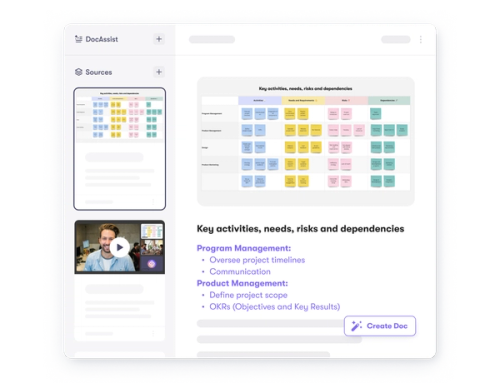Quiet Quitting: Don't Ignore These Signs

What is quiet quitting?
The term “quiet quitting” recently took off in the media, originating from Tik Tok users talking about being burnt out and fed up with work. It’s most often used to describe the scenario in which an employee, rather than outright quitting, instead stops taking initiative and simply does the bare minimum required of them. It’s often described as a change in mindset at work, often as a result of demotivation, burnout, or stress.
Why are so many people “quiet quitting” their jobs?
More and more millennials in the workforce are choosing to reject hustle culture, especially in positions for which they don’t feel adequately compensated. For some, this means mentally checking out of their job, potentially while focusing their efforts on finding a new one. For others, it means drawing the line between their normal responsibilities for which they are contractually obligated, and performing extra duties in addition to their daily work which they aren’t paid for–and expected to do in order to be promoted.
Some say that it’s impossible for them to quit quietly due to their race, gender, or profession (first responders, for example). Others argue that quiet quitting isn’t actually an issue at all–rather, it’s people setting boundaries at work and standing up for themselves. New Work expert Anita Lettink says that quiet quitting is “more a reality check for employers than anything else. People will do the work you pay them for. Not more, not less.”
In an unstable job market, it’s not uncommon for people to “shelter” in jobs they aren’t actually happy in–meaning they stay for the job security, with one foot out the door, ready to jump on the next opportunity that comes their way. But how do you keep your team engaged and motivated, and not just coasting along, waiting for something better to come along?
Signs your team might be quiet quitting
The most common reason for employees to start quiet quitting is they feel overworked and underpaid. However, just because they aren’t staying late at the office or responding to emails on the weekend doesn’t mean they aren’t motivated and engaged with their work. There are other indications that your team may be unhappy, though:
They are cynical about everything. If you have a team member who is increasingly cynical and negative, it may be a sign that they are burnt out or overworked. Bad days aren’t a reason for worry, but if you have an employee who is noticeably unhappy or making frequent negative comments, it might be time to check in with them.
They seem disengaged or checked out. Have you noticed a usually talkative and happy team member seeming uncharacteristically quiet or zoned out in recent meetings? They might be feeling unmotivated or even apathetic.
They don’t finish projects on time or with unusually low quality. If someone on your team is getting their tasks done unusually slow or repeatedly producing low-quality work, it’s likely a tell-tale sign that they are quiet quitting.
Reasons your team is quiet quitting
If you notice signs of quiet quitting on your team, it’s likely an indication of something that needs to be changed on the employer’s side. It might even be time to reassess your management style. Here are some reasons why your employees might be quiet quitting:
It’s unclear what your expectations are. Your team might be underperforming simply because they don’t know what you expect from them. If you need them to complete certain projects by a specific deadline, make sure it’s clear from early on what will be required. If you need them to show up at the office every day, make sure they understand that from the beginning–even before they accept the position.
There is a lack of clear communication. One of the leading causes of disengagement is poor communication between leadership and employees. This is connected to the previous point: if you aren’t clearly communicating to your team what their expectations are (and clarifying these points with every level of management to ensure there is no misunderstanding), then your team won’t be motivated to perform optimally. They might even lose trust in your leadership if they think you aren’t being upfront and transparent with them.
They are overworked. Of course, there will be busier weeks than others, but it’s unsustainable for your team to have consistent pressure on them and an overwhelming amount of tasks and projects on their plates. This will lead to the quiet quitting tell-tale signs of burnout.
They are being micromanaged. You might not realize it, but you may be micromanaging your team. Often, this is a sign of a trust issue between the manager and the employee. If your team doesn’t feel trusted to complete their work on their own terms, then they won’t be motivated to do more than the absolute bare minimum.
Quiet quitting may be a consequence of top-down management. When employees are simply given a to-do list of items to check off, there’s not a lot of motivation to take initiative on projects outside of what is being dictated to them. This can lead to a lack of innovation and employee buy-in. If you want your team to start going above and beyond, you’ll need to make sure you’re giving them the support, resources, and autonomy they need to succeed.
How to prevent quiet quitting
There’s a fine line between having high expectations of your employees and expecting people to take on more work than they are compensated for. Overworking employees should never be the norm. The importance of mental health at work cannot be overstated–countless studies have proven that happy, healthy employees are more motivated. According to Gallup, only "32% of full- and part-time employees working for organizations are now engaged, while 17% are actively disengaged." Luckily, there are solutions to this chronic lack of engagement. Here’s how to prevent quiet quitting and keep your team happy and motivated:
Talk to your team members individually. You may already have 1-1 meetings, but how deep are you really digging? Check in with your team regularly and ask them how they’re really doing. Ask how they’re managing their workload, if they’re happy with the projects they’re working on, and if they need any support or additional resources. Ask for their honest feedback about the company and your own management style. Being open to feedback and creating an environment where employees feel safe and comfortable speaking their minds can help prevent miscommunication and disengagement. Just make sure that you take their feedback and actually make changes–don’t let it go in one ear and out the other.
Make sure everyone has enough support and resources. If your team is overworked and has too much on their plates, you can’t expect them to produce quality results. Take the time to sit down with them and assess their workload. Do they have adequate resources and enough time to complete the project? What are the expectations for the results? What are any potential blockers? If there is too much work for one team member, see if you can bring someone else on board. If that’s not an option, then it’s time to reassess your expectations of the project.
Encourage a healthy work/life balance. Mental health should not be a taboo topic at work, and as a leader, you should also practice what you preach. That means establishing boundaries between home life and work life, taking your vacation days, and staying home and resting when you’re sick. Creating an environment where people can feel rested, healthy, and happy at work will almost always increase motivation and productivity.
Give your team autonomy. By letting employees work on their own terms, set their own goals, and create their own initiatives, they’ll be far more likely to stay engaged and motivated with their work. Moreover, encourage them to switch it up every once in a while. If you have a data analyst who seems on the brink of getting burnt out with numbers, ask them if they would be interested in trying a more creative task like writing a blog or coming up with an infographic. Just ensure you’re not adding additional stress or work–ask them what they want to work on. Keeping projects diverse and having employees utilize different skills will likely give them a renewed sense of energy and enthusiasm.
Healthy workplace = happy workers
The key to avoiding quiet quitting lies in between the lines of overwork and boredom, micromanagement and a complete lack of accountability. If employees work jobs they love, in which they find a sense of purpose and excitement (as well as recognition and appropriate compensation), then going the extra mile becomes rewarding rather than taxing, and employees are far more likely to stay.
FAQ






